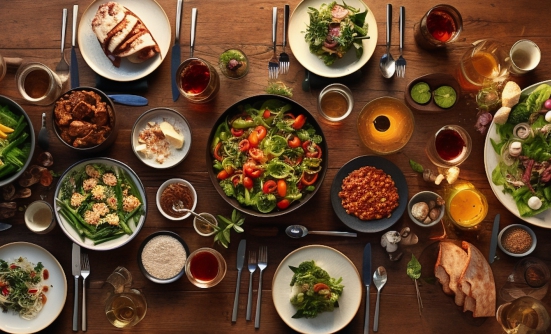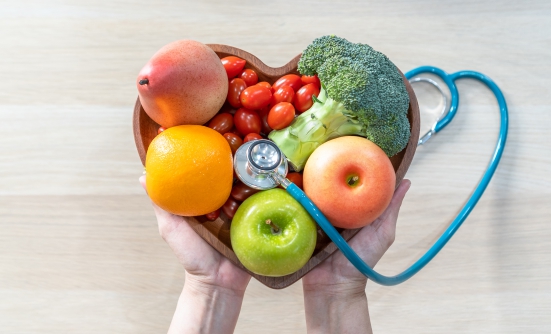“Chemo brain” is a common complaint from people with cancer who are receiving treatment with chemotherapy, referring to cognitive problems that are often associated with chemotherapy or its side effects. However, even people with cancer who don’t receive chemotherapy can still have cognitive challenges as a result of the activity of the cancer itself.
Chemo brain is frustrating, embarrassing, and makes you wonder if you’re losing your mind. The challenge with chemo brain is that there’s no simple way of treating it. This condition could be caused by sleep problems, fatigue, stress, anxiety, or other medical issues associated with a cancer diagnosis.
Most of the time, coping with cognitive changes may require a variety of different strategies. Commonsense self-help strategies include exercise, getting plenty of rest, playing brain games, and eating well. Let’s review what “eating well” means to combat chemo brain and improve brain health.
Food & Nutrients for Brain Health
There is currently no consensus on any particular diet or nutrition strategy that has been proven to improve brain health. However, we know that there are several delicious foods that deliver nutrients that are important for brain function.
The following are 5 food strategies to focus on.
1. Fish and seafood. Fish, especially salmon, tuna, mackerel, herring, and sardines, are full of healthy fats that are essential for brain health. Although research has focused on the omega-3 fats in fish, many other nutrients are beneficial to health that are available in fish, including protein, B vitamins, vitamin D, iron, magnesium, and potassium. I typically recommend to people with cancer to eat fish at least 2 times a week.
2. Nuts. Another great source of healthy fats are nuts. Many people ask me which nuts are best for health. There is no wrong answer here, because all nuts are good for you. I suggest choosing a variety of nuts, and selecting the ones that suit your taste and budget. Nuts provide plant proteins, as well as fiber, B vitamins, calcium, iron, and antioxidants. In addition, they don’t require any preparation. Just grab them and enjoy.
3. Avocado. Avocados have become quite popular recently, being named the hipster’s favorite food! But avocados have always been delicious and full of healthy fats, as well as other important nutrients. Most of the fat in avocados is monounsaturated fat, which is the best type of fat, and people should get more of it.
To choose the perfect avocado, gently squeeze the fruit in the palm of your hand. A ripe, ready-to-eat avocado will be firm, but will yield to gentle pressure. To ripen an avocado, place it on your counter or in a bowl for a few days, until it gives slightly to gentle pressure.
4. Oils/fats. Many of my patients are confused about which oils to use. For brain and heart health, we focus on omega-3 fats and monounsaturated fats. The oils that provide the best sources of these fats include olive oil, peanut oil, and canola oil. However, any oil (including vegetable oil) that is liquid at room temperature, is mainly unsaturated fat.
Saturated fats, such as butter and coconut oil, are solid at room temperature. These are the types of oils people should eat less of; these fats have important functions in things like baking, but not in brain health.
Many people ask my opinion about coconut oil, and I typically recommend that coconut oil can be a fine alternative to butter, but it’s not a good idea to switch from olive oil to coconut oil. The reason is that olive oil is monounsaturated (the good fat) and coconut oil is saturated fat (that should be eaten less of). And I definitely don’t consider coconut oil to be a “health food.”
5. Fruits and vegetables. Fruits and vegetables are a very broad food category, but they are extremely important in optimizing your nutrition, especially when it comes to brain health and to eating an anti-inflammatory diet pattern.
By consuming a rainbow of fruits and vegetables, you will be sure to get several antioxidants, vitamins, minerals, and phytonutrients that are essential for promoting healthy tissue.
Some of the most researched food categories are cruciferous vegetables (broccoli family), berries, soy-based foods, leafy vegetables, and beans or legumes.
3 Practical Tips for Getting Daily Brain-Boosting Nutrients
When I’m talking with my patients, I remind them that knowledge is a good start for being adequately nourished, but it’s your habits that make the biggest difference! Here are a few habits that can help you increase your intake of these brain-nourishing foods:
1. Snack on nuts. Have a handful of nuts once a day, or spread a nut butter on bread or toast. Better yet, have your nut butter with an apple or celery to boost your fruit and vegetable intake for the day.
Recipe Idea: Take a tip from kids and enjoy “Ants on a log” for a snack. Spread peanut butter or almond butter on celery and top with raisins.
2. Swap out your grain toppings. Instead of opting for butter on your toast or waffle, or cheese with your crackers, swap these with avocado, nut butter, or seed butter (tahini or sunflower butter).
Recipe Idea: Top whole grain toast with tahini and sliced apples, and drizzle with honey.
3. Keep fish on the menu and in the pantry! Baked or grilled fish makes for an easy and amazing dinner, but eating fatty fish can be as simple as pulling it from the pantry. Canned or packaged tuna, salmon, and sardines are quick and nutritious options to choose from.
Recipe Idea: Mix 6 oz. of tuna with an avocado, lime juice, red wine vinegar, onions, and tomatoes, and add salt and pepper to taste. Enjoy on lettuce, bread, or crackers.
Healthy Eating Resources
For anyone looking for a structured guide for healthy eating that focuses on increasing healthy fats, I recommend the Mediterranean diet, or the MIND (Mediterranean-DASH Intervention for Neurodegenerative Delay) diet. The MIND diet combines the DASH diet and the Mediterranean diet.
For resources about the Mediterranean diet, check out Oldways (https://oldwayspt.org). To read about this diet, I recommend The MIND Diet, by Maggie Moon, MS, RDN (www.maggiemoon.com). And remember to eat well!
Key Points
- Chemo brain could be caused by chemotherapy, by sleep difficulties, fatigue, stress, anxiety, or the cancer itself
- For brain health, use olive oil, peanut oil, and canola oil
- Pay attention to the fats you use to cook
- To improve brain health, eat fish at least twice a week
- Eat fruits or vegetables at every meal and snack
Patient Resources
ASCO Answers: Chemobrain
www.cancer.net/sites/cancer.net/files/asco_answers_chemobrain.pdf
AARP: Eating Healthy is Good for your Brain
www.aarp.org/health/brain-health/info-2018/brain-health-nutrition-study-fd.html
Oldways: food and nutrition nonprofit organization
https://oldwayspt.org











